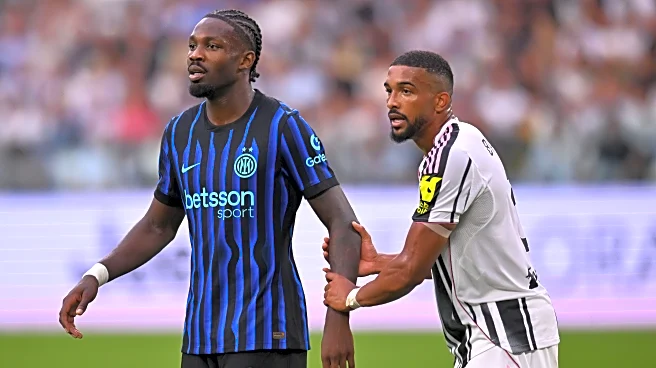Rapid Read • 8 min read
The Los Angeles Angels have made several trade decisions at the recent MLB trade deadline that have left fans and analysts questioning the team's strategy. Despite being nine games behind in the American League West division and 4.5 games out of the last AL Wild Card spot, the Angels opted not to sell off veteran players with expiring contracts. Notable players like Tyler Anderson, Kenley Jansen, Kyle Hendricks, and Luis Rengifo, who hold positive trade value, were retained. Additionally, Taylor Ward, a player under control through 2026 and considered a trade candidate for years, was not moved. The Angels' playoff odds have significantly decreased, with FanGraphs and Baseball Reference estimating their chances at 0.7% and 0.4%, respectively. This decision comes as the team continues to struggle with the longest current postseason drought in baseball.
AD
The Angels' decision to retain veteran players instead of trading them for future assets raises questions about their long-term strategy. By not capitalizing on the trade value of these players, the Angels may have missed an opportunity to strengthen their farm system, which is currently ranked as the worst in the league by MLB.com. This could have significant implications for the team's future competitiveness, as they remain uncompetitive at both the minor and major league levels. The decision to buy rather than sell at the deadline suggests a short-term focus that may not align with the team's current standing and prospects for postseason success. This approach could impact the team's ability to rebuild effectively and challenge for playoff positions in the coming years.
The Angels will need to reassess their strategy as they move forward, particularly if they continue to fall short of playoff contention. The front office may face pressure to make more decisive moves in future trade windows to address the team's weaknesses and improve their farm system. Fans and analysts will be watching closely to see if the Angels can develop a more coherent plan to break their postseason drought and build a competitive team for the future.
The Angels' trade decisions highlight broader issues within the organization, including potential misalignment between ownership and management regarding team direction. The reluctance to part with veteran players may reflect a desire to maintain a semblance of competitiveness, but it also underscores the challenges of balancing short-term performance with long-term rebuilding efforts. This situation could lead to increased scrutiny of the team's leadership and decision-making processes.
AD
More Stories You Might Enjoy











